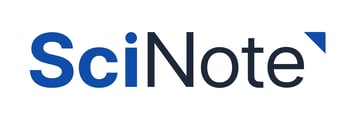Tags in SciNote allow you to label tasks, experiments, projects, and inventories with customizable metadata.
Whether you're managing a multi-phase clinical study, coordinating sample processing, or running cross-departmental quality reviews, tags give you a fast, flexible way to organize and filter your work.
With the introduction of Global Tags, tags are no longer limited to individual projects - they’re now workspace-wide and centrally managed.
What Are Tags in SciNote?
Tags are short labels (e.g., Status:InProgress, Sample:Blood, Audit:FDA) that can be applied across Task in SciNote to:
-
Group related tasks across different Experiments and Projects
-
Filter for targeted search results
-
Improve collaboration across departments
What Are Global Tags?
Global Tags in SciNote are workspace-wide and centrally managed. They allow teams to apply and reuse standardized tags across all Tasks in the workspace.
Key Capabilities of Global Tags
-
Tags can be used in Tasks across different Experiments and Projects
-
A central Tags tab in Workspace Settings allows Workspace Owners to manage tags in one place
-
Tags can be used as a filter in SciNote's Global Search
Practical Tagging Examples
Tags can be tailored to match how your lab organizes its work.
Project-Centered Example
For studies and client projects:
-
Project:OncoStudy21 -
Sponsor:ACME Biocorp -
Phase:Preclinical -
Milestone:M1-Complete
Product-Centered Example
For batch and validation tracking:
-
Product:TheraX003 -
SKU:VX003-12µg -
Platform:RT-PCR -
Validation:Complete
Sample-Centered Example
For clinical and diagnostic workflows:
-
Sample:ThroatSwab -
PatientID:987654-A -
Result:Positive -
Stage:Extraction
Process-Centered Example
For SOP-based and regulated processes:
-
Process:StabilityTest -
SOP:SOP-002-V3 -
CAPA:Implemented -
Audit:2024-Q2-FDA
Sample Tags by Department
- QA/QC
QA:PendingReview,QC:Pass,Validation:Complete
- Regulatory
Compliance:GLP,Document:SOP-Final,GxP:Yes
- Diagnostics
Sample:Blood,Stage:Amplification,Result:Invalid
- Bioinformatics
Pipeline:Alignment,QC:OutlierFlagged,Result:Unclear
- IT
System:Validated,Access:Restricted,Audit:CAPARequired
Best Practices for Using Tags
-
Standardize tag naming conventions across teams
-
Assign only designated individuals to manage tags centrally
-
Periodically review and merge or delete redundant tags
-
Train teams on shared tag libraries and proper usage
Common Pitfalls to Avoid
-
Tag sprawl: Using multiple inconsistent versions like
QA,qa, andQualityAssurance -
Over-tagging: Too many tags reduce clarity and usefulness
-
Inconsistent formatting: Agree on a nomenclature and stick to it for consistency
-
Lack of governance: Assign clear responsibility for tag maintenance
If you have any additional questions, please, do not hesitate to contact us at support@scinote.net. For more information about the Premium plans, please request a quote.
